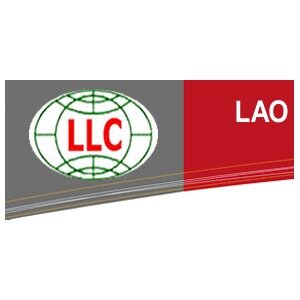Best ADR Mediation & Arbitration Lawyers in Laos
Share your needs with us, get contacted by law firms.
Free. Takes 2 min.
Or refine your search by selecting a city:
List of the best lawyers in Laos
About ADR Mediation & Arbitration Law in Laos
The Lao People’s Democratic Republic, commonly known as Laos, is a developing nation that recognizes Alternative Dispute Resolution (ADR) practices such as mediation and arbitration. These processes offer alternative routes for conflict resolution outside of the traditional court system. In recent years, these practices have increasingly been integrated into the Lao legal framework, highlighting the recognition of their efficiency in resolving commercial disputes. The Lao government has been fostering these practices, especially in business-related matters, to attract more foreign investments into the country and modernize the business environment.
Why You May Need a Lawyer
If you face a dispute that involves personal matters, business transactions, commercial relationships, or other types of conflicts in Laos, you may need a lawyer who specializes in ADR, Mediation, and Arbitration. These attorneys have expertise in resolving disputes without going through the traditional, potentially expensive and time-consuming, court processes. They can help you capitalize on the benefits of ADR, which often leads to amicable resolutions that preserve relationships and confidentiality.
Local Laws Overview
Laos has established laws and procedures for engaging ADR mechanisms that are inscribed in the nation's Law on Resolution of Economic Disputes. The law outlines the regulatory frameworks for mediation and arbitration processes, providing for the establishment of mediators and arbitration centers within the country. Moreover, it includes provisions that recognize arbitral awards, including foreign arbitral awards, based on the New York Convention, which Laos acceded to in 1998. This recognition ensures the enforceability of arbitration outcomes both locally and internationally.
Frequently Asked Questions
1. Can any dispute be resolved through ADR in Laos?
While ADR is suitable for many disputes, there are certain types of legal fights, such as criminal matters, that cannot be sorted out through ADR processes.
2. Is ADR mandatory in Laos?
While ADR is encouraged, it is not mandatory in Laos. Parties have the freedom to choose between court litigation and ADR. However, many opt for ADR due to its many benefits, such as being more cost-effective and time-efficient.
3. Are mediators and arbitrators in Laos unbiased?
Yes, mediators and arbitrators are expected to maintain impartiality throughout the process. They are trained professionals who assist the disputing parties to reach a mutually agreeable resolution.
4. Is the decision from the arbitral tribunal final?
Arbitration decisions are final and enforceable under Laotian law, and parties cannot appeal these rulings in a court.
5. What happens if the parties cannot reach an agreement in mediation?
If parties cannot reach an agreement in mediation, they can then choose to resolve their dispute through arbitration or litigation.
Additional Resources
The Ministry of Justice of Laos and the Lao National Chamber of Commerce and Industry (LNCCI) can serve as resources for further information. The LNCCI has an Arbitration Center that handles both domestic and international disputes.
Next Steps
If you find yourself in need of legal assistance in matters of ADR, mediation, or arbitration in Laos, it is advisable to seek counsel from a reputable law firm experienced in these fields. These professionals can guide you through the process and represent your best interests in the dispute resolution.
Lawzana helps you find the best lawyers and law firms in Laos through a curated and pre-screened list of qualified legal professionals. Our platform offers rankings and detailed profiles of attorneys and law firms, allowing you to compare based on practice areas, including ADR Mediation & Arbitration , experience, and client feedback.
Each profile includes a description of the firm's areas of practice, client reviews, team members and partners, year of establishment, spoken languages, office locations, contact information, social media presence, and any published articles or resources. Most firms on our platform speak English and are experienced in both local and international legal matters.
Get a quote from top-rated law firms in Laos — quickly, securely, and without unnecessary hassle.
Disclaimer:
The information provided on this page is for general informational purposes only and does not constitute legal advice. While we strive to ensure the accuracy and relevance of the content, legal information may change over time, and interpretations of the law can vary. You should always consult with a qualified legal professional for advice specific to your situation.
We disclaim all liability for actions taken or not taken based on the content of this page. If you believe any information is incorrect or outdated, please contact us, and we will review and update it where appropriate.
Browse adr mediation & arbitration law firms by city in Laos
Refine your search by selecting a city.










